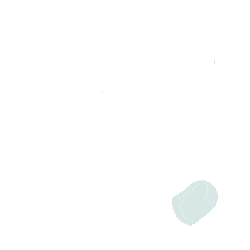Job Description
2. Job Purpose<br>· To provide high quality research support and undertake internationally competitive research aimed at publication thereby contributing to the academic and research mission of the University.<br><br>· Since the Postdoctoral, experience is transitional to becoming an independent researcher or faculty member, the Postdoctoral tries their best to acquire the varied skills necessary to advance their career with guidance from the advisor. These skills include, but are not limited to, the ability to present research plans and findings in a convincing style, both in oral and written modes of communication, the ability to understand research group management and supervision of others, the ability to establish contacts and network with colleagues pursuing a similar research agenda, the ability to organize and teach a class or a course if more inclined towards a teaching career.<br><br><br>Perform laboratory and field experiments, including diffusion of sulphate and chloride ions through concrete samples/structures, physical and chemical attacks of concrete, and external sulphate attack (ESA).<br>Obtain experimental parameters describing the degradation of the concrete structures that are exposed to the marine environments.<br>Study the formation of gypsum and ettringite that lead to strength loss and volume expansion of concrete structures.<br>Investigate the effect of temperature on the degree of sulphate attack to the concrete structures in nuclear power plants (NPPs).<br>Analyze the concrete samples exposed to the nuclear power plant (NPP) that based on UAE’s environment.<br>Develop concrete ageing/degradation model by sulphate attack.<br>Evaluate the quantitative detecting capability of the sulphate attack by the Wenner method.<br>Develop an optimized non-destructive technique for the damaged on-shore concrete structure.<br>Investigate the current status of concrete aging and remedial measures at NPPs in other countries.<br>To develop remedial measures proper to concrete structures damaged by sulphate attack in NPPs.<br>Analyze model outputs together with the experimental data, available from literature, to generate scientific results and science-based recommendations.<br>To independently undertake research in the relevant discipline area using the appropriate methods and/or techniques.<br>To produce research reports and publications as required by the funding body and for dissemination to the wider academic community.<br>To collaborate with research colleagues and support staff internally as appropriate to the actively.<br>Develop appropriate external contacts and networks relevant to the project and to future funding opportunities.<br>To attend, contribute, and where necessary lead relevant meetings.<br>To undertake any other duties relevant to the research group activities.<br>Operational Responsibilities<br>In this project, experiments will be performed to understand the impact of the UAE harsh environment on the concrete structures in nuclear power plants (NPPs) that are degraded by chemical attack (efflorescence and leaching, sulphate attack, acid attack, etc.) and by physical attack (freeze–thaw, salt crystallization, etc.). Among the aforementioned attacks, sulphate attack is one of the main causes of strength loss and volume expansion/cracking of concrete structures that are exposed to marine environments. This project aims to investigate the ageing/degradation of concrete structures by sulphate attack and develop remedial measures for damaged concrete structures.<br><br>Interested candidates should send their CV and a detailed cover letter to:<br>ahmed.alkaabi@ku.ac.ae<br>Supervisory Responsibilities<br>None.





